Komondor: A giant dog breed!
The Komondor is a large and majestic Hungarian livestock guardian dog known for its distinctive corded coat, strength, and loyalty. This ancient breed has a long history of protecting livestock, particularly sheep, and has become cherished for its unique appearance and steadfast devotion to its family. While primarily bred for working purposes, Komondors can also make devoted companions for experienced owners willing to meet their specific needs.
History of the Breed:
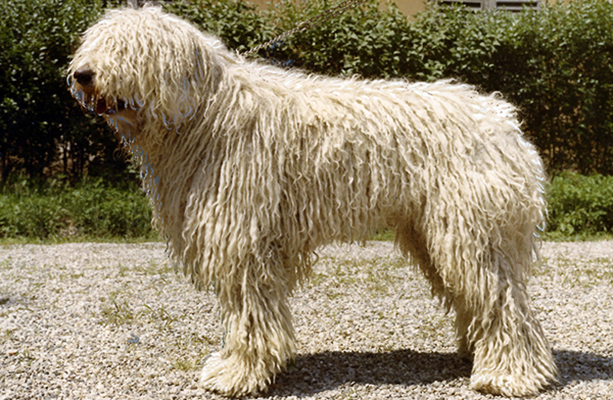
The Komondor’s origins trace back to Hungary, where it has been guarding livestock for centuries. Bred to blend in with sheep and protect them from predators, the Komondor developed its trademark corded coat, which provides both insulation and camouflage. Throughout history, Komondors have been revered for their bravery and effectiveness as guardians, with their skills earning them a reputation as one of the best livestock guardian breeds in the world.
Physical Characteristics:
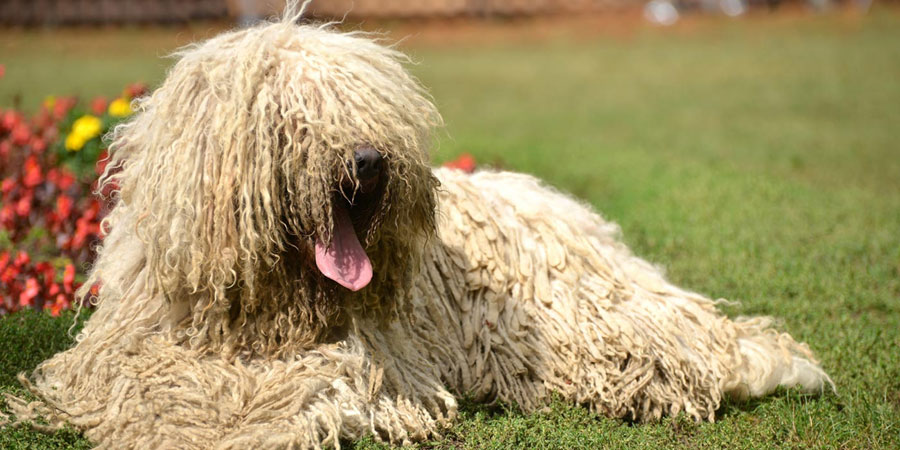
The most striking feature of the Komondor is its unique corded coat, which consists of long, thick, and rope-like strands of fur. This corded coat serves as protection against harsh weather conditions and potential predators. Beneath the coat, the Komondor has a strong and muscular build, with a deep chest, broad shoulders, and a powerful stance. Despite their large size and imposing appearance, Komondors are agile and capable of quick movement when necessary.
Temperament and Behavior:
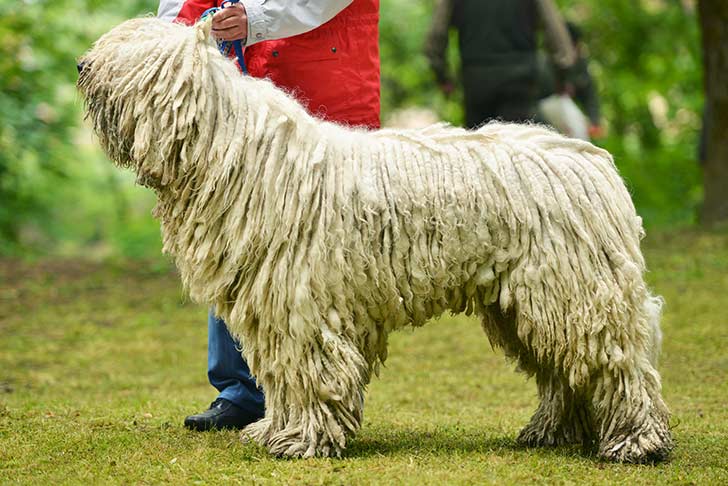
Komondors are known for their independent, protective, and loyal nature. They are deeply devoted to their family and will fiercely defend them against any perceived threats. While typically calm and gentle with those they know, Komondors can be wary of strangers and may exhibit aloof or reserved behavior. Early socialization and proper training are essential for ensuring that Komondors develop into well-mannered and well-adjusted dogs.
Training and Exercise:
Training a Komondor requires patience, consistency, and firmness, as they have a strong independent streak. Early socialization is crucial to prevent aggression or fearfulness towards strangers or other animals. Komondors are not overly demanding in terms of exercise, but they do require regular physical activity to keep them mentally and physically stimulated. Daily walks, playtime, and opportunities to roam in a secure area are important for their well-being.
Grooming:
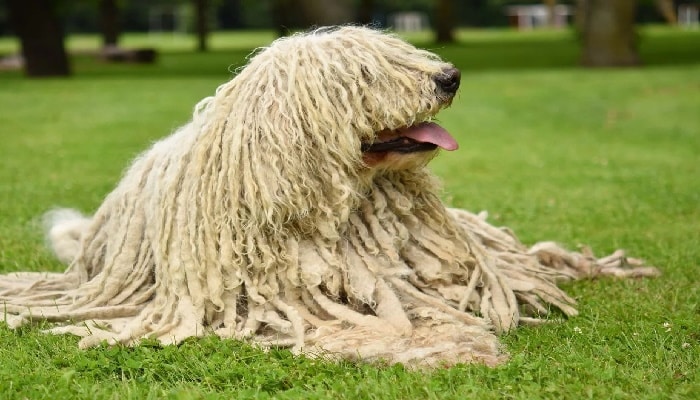
Grooming a Komondor’s corded coat requires special care and attention. The cords must be separated and kept clean to prevent matting and odor buildup. Regular bathing and drying are necessary to maintain the coat’s health and appearance. Additionally, Komondors may require occasional trimming of the cords to keep them from becoming too long or cumbersome.
Health:
Komondors are generally healthy dogs with a lifespan of around 10 to 12 years. Like all breeds, they may be prone to certain health issues, including hip dysplasia, bloat, and eye problems. Regular veterinary check-ups, a balanced diet, exercise, and proper grooming are essential for maintaining their health and well-being.
Suitability as Pets:
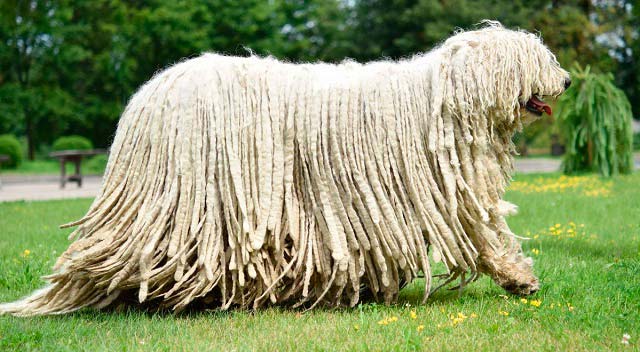
Komondors are best suited to experienced owners who understand their unique needs and are committed to providing them with proper care and training. They are not recommended for first-time dog owners or those who cannot devote the time and effort required to raise and care for a large, protective breed. Komondors thrive in environments where they have space to roam and a job to do, whether it be guarding livestock or serving as a loyal companion and guardian.
Frequently Asked Questions
Are Komondors good family pets?
- Komondors can be excellent family pets for experienced owners who understand their protective nature and are willing to provide proper training and socialization. They are loyal and devoted to their family but may be wary of strangers.
Do Komondors get along with children and other pets?
- Komondors can be gentle and tolerant with children and other pets when properly socialized from a young age. However, their protective instincts may lead them to be cautious around unfamiliar individuals or animals.
Are Komondors aggressive?
- Komondors are not inherently aggressive, but they are naturally protective and may exhibit territorial behavior if not properly trained and socialized. Early socialization and positive reinforcement training are essential for shaping their behavior.
How much exercise do Komondors need?
- Komondors are not overly active dogs, but they do require regular exercise to stay healthy and mentally stimulated. Daily walks, playtime, and opportunities to roam in a secure area are important for meeting their exercise needs.
Do Komondors shed?
- Komondors do not shed like other breeds with traditional coats. Instead, their corded coat traps loose hair, preventing it from falling out naturally. However, regular grooming and maintenance of their cords are necessary to prevent matting and odor buildup.
